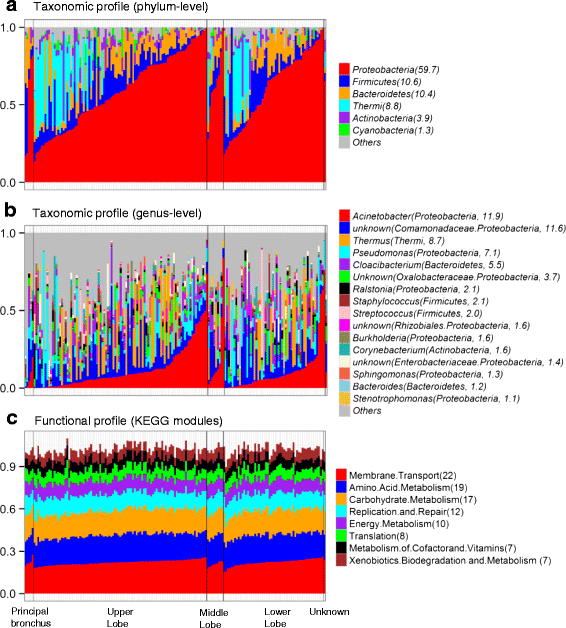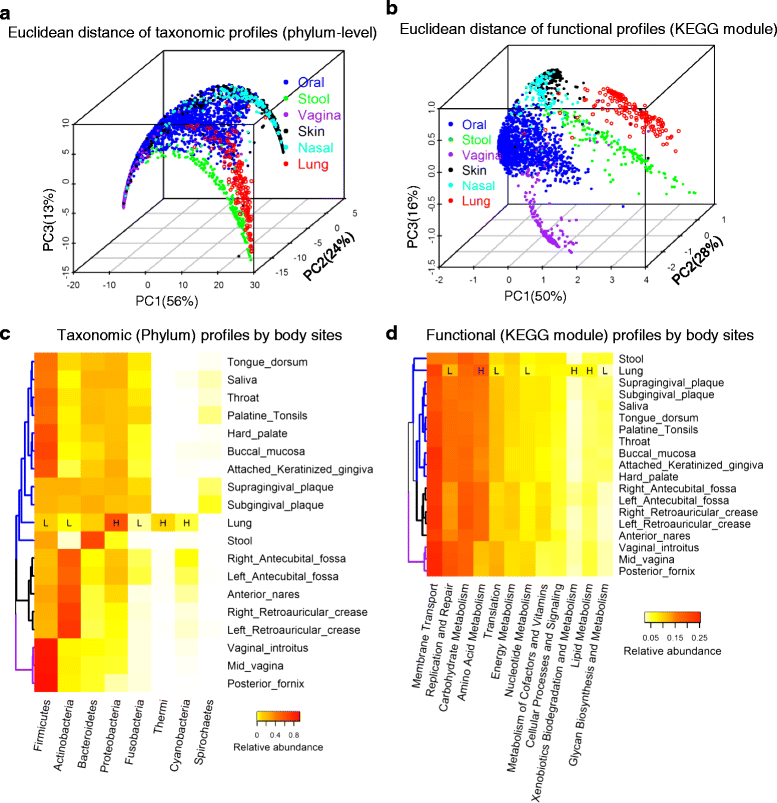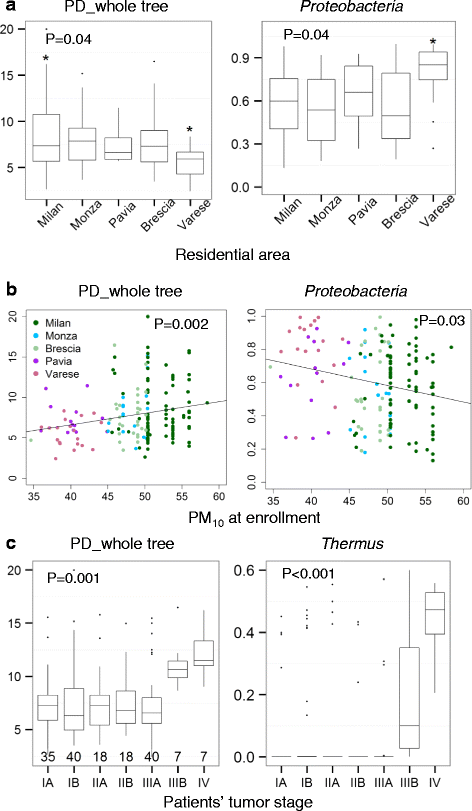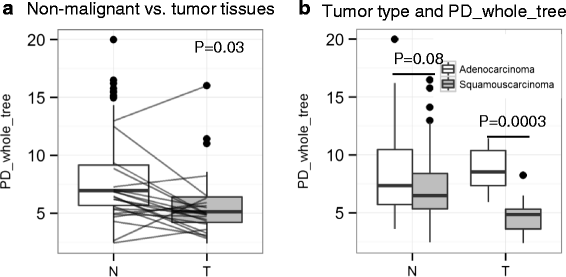Characterizing human lung tissue microbiota and its relationship to epidemiological and clinical features
- PMID: 27468850
- PMCID: PMC4964003
- DOI: 10.1186/s13059-016-1021-1
Characterizing human lung tissue microbiota and its relationship to epidemiological and clinical features
Abstract
Background: The human lung tissue microbiota remains largely uncharacterized, although a number of studies based on airway samples suggest the existence of a viable human lung microbiota. Here we characterized the taxonomic and derived functional profiles of lung microbiota in 165 non-malignant lung tissue samples from cancer patients.
Results: We show that the lung microbiota is distinct from the microbial communities in oral, nasal, stool, skin, and vagina, with Proteobacteria as the dominant phylum (60 %). Microbiota taxonomic alpha diversity increases with environmental exposures, such as air particulates, residence in low to high population density areas, and pack-years of tobacco smoking and decreases in subjects with history of chronic bronchitis. Genus Thermus is more abundant in tissue from advanced stage (IIIB, IV) patients, while Legionella is higher in patients who develop metastases. Moreover, the non-malignant lung tissues have higher microbiota alpha diversity than the paired tumors.
Conclusions: Our results provide insights into the human lung microbiota composition and function and their link to human lifestyle and clinical outcomes. Studies among subjects without lung cancer are needed to confirm our findings.
Keywords: 16S rRNA; Air pollution; Tumor stage.
Figures




References
Publication types
MeSH terms
Substances
LinkOut - more resources
Full Text Sources
Other Literature Sources
Medical

